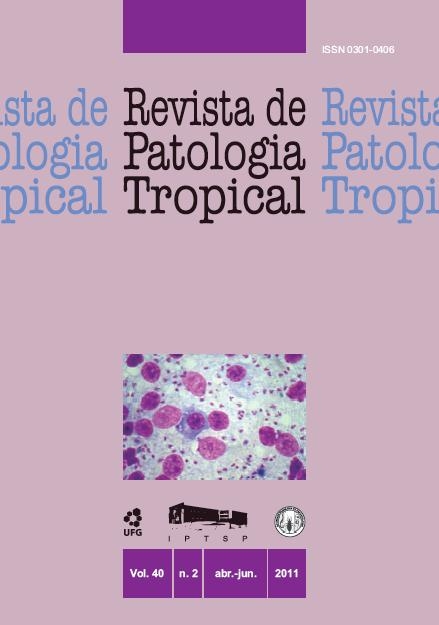A própolis no combate a tripanossomatídeos de importância médica: uma perspectiva terapêutica para doença de Chagas e Leishmaniose
DOI:
https://doi.org/10.5216/rpt.v40i2.14936Palavras-chave:
Própolis, Protozoonoses, Leishmaniose, Doença de Chagas.Resumo
Protozoonoses tais como leishmaniose e doença de Chagas, consideradas doenças negligenciadas, afetam milhões de pessoas em todo o mundo, por isso são constantes as pesquisas para o desenvolvimento de terapias mais eficazes. O interesse pela fitoterapia como fonte alternativa para o tratamento de inúmeras enfermidades tem crescido e merece destaque o uso da própolis, amplamente utilizada na prática médica popular. São atribuídas à própolis, principalmente às variedades encontradas no Brasil, diversas propriedades farmacológicas por sua complexa composição. Estudos in vivo e in vitro com extratos de própolis contra Trypanosoma cruzi e Leishmania vêm sendo realizados nos últimos anos com resultados promissores, embora sejam necessários estudos complementares. Este trabalho traz uma revisão sobre os aspectos clínicos e epidemiológicos da leishmaniose e doença de Chagas, assim como a aplicabilidade da própolis como um recurso terapêutico eficaz e seguro para o tratamento dessas protozoonoses.
Downloads
Downloads
Publicado
Como Citar
Edição
Seção
Licença
The manuscript submission must be accompanied by a letter signed by all authors stating their full name and email address, confirming that the manuscript or part of it has not been published or is under consideration for publication elsewhere, and agreeing to transfer copyright in all media and formats for Journal of Tropical Pathology.

